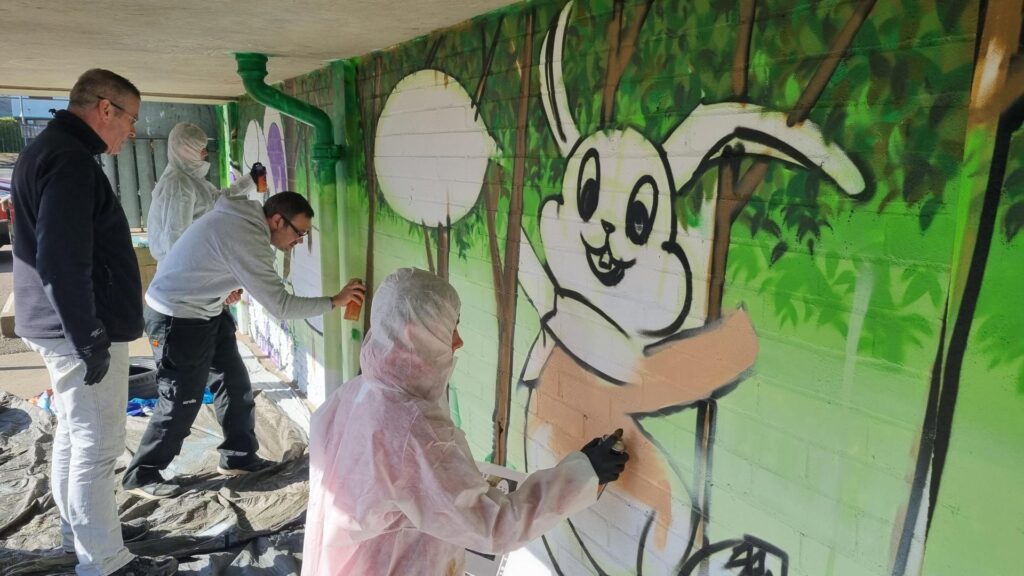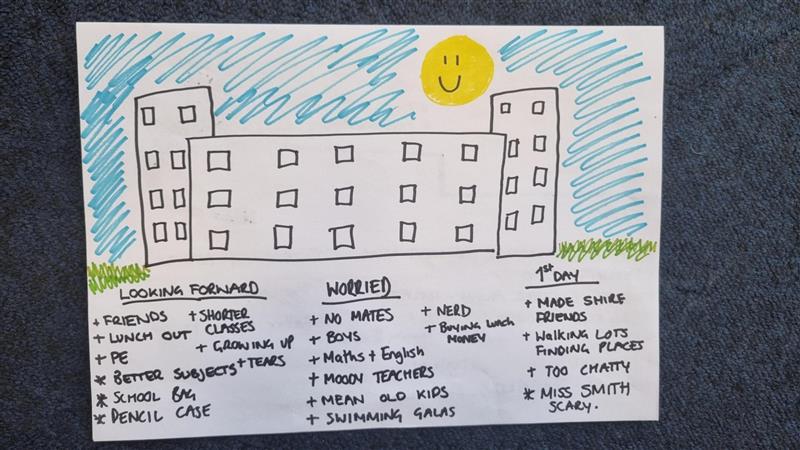Unveiling the Youth Perspective: A Journey of Engagement with Reboot
Introduction:
Embarking on a mission to reshape the educational landscape for vulnerable learners in Aberdeen, Reboot, an Early Action System Change programme initiated by Aberdeen Foyer, sought to amplify the voices of young people. Through diverse engagement methods such as Real Life Stories, Photography, Streetwork, Storyboarding, Focus groups, Murals, and digital involvement, Reboot aimed to understand the concerns and aspirations of the youth.
Diverse Engagement Approaches:
Photography: In a unique initiative, Reboot engaged P5 pupils in a primary school, providing them with Polaroid cameras. They were given instructions to take 2 photos of something in the school that made them feel good, two photos of something that didn’t make them feel too good and one photo of their own choice. The young photographers captured aspects they liked and disliked about their school, expressing their hopes and dreams through art rather than conventional conversation. The instructions were purposefully kept vague and open to ensure young people could express what they felt was important to them rather than ‘meeting a brief’.
Mural: A “Hopes and Dreams” session with P7 pupils led to the creation of a mural. They were asked to imagine their ideal school and ideal personal life and what that would look like, what things that exist now would they want to keep, what aspects would like they to change, who would be in it, where would they live, how would people behave, etc. Reflecting on their aspirations for both school and personal life, the students designed characters and emotions, turning their dreams into a vibrant mural which was spray-painted on their schools wall by Academy pupils.

Real Life Stories: Reboot delved into the experiences of exceptional entrants at NESCOL, conducting semi-structured interviews that explored their educational journey from their point of view. Exceptional entrants are young people who due to their date of birth are not allowed to leave school at the end of S4 but have to continue school until Christmas in S5, unless they attend college as a direct alternative. These interviews, combined with emotive stickers chosen by the students, resulted in Real Life Stories that vividly portrayed their educational journeys.
These are just some of the examples of how Reboot engaged with young people. Reboot always aims to personalise the approach taken, to ensure it is accessible to everybody involved and creates a space for meaningful conversations.
Emerging Themes:
1. Bathrooms: A recurring concern among young people was the state of school bathrooms. Described as dirty, unsafe, and inaccessible, these facilities often led students to leave school to use the bathrooms at home, return late and face detention. While advocating for universal accessibility, students expressed opposition to the concept of unisex toilets.
2. Safe Spaces: Students expressed a need for dedicated calm and safe spaces within schools to escape the noise and busyness. Young people highlighted that these spaces should serve their intended purpose and not be misused by others.
3. Bullying: Almost universally, the issue of bullying surfaced in discussions. Students shared instances of being bullied, feeling let down by school actions, and, in some cases, experiencing serious mental health issues as a result.
4. Mental Health: A significant number of students highlighted a lack of mental health care and support. Many felt that their mental health concerns were not taken seriously, and even being offered counselling through schools was deemed insufficient. They also felt that when speaking up about their struggles in Primary School, they were deemed ‘too young’ to be suffering poor Mental Health.
5. General Support: While acknowledging the existence of support groups, students suggested centralizing these groups within the school to avoid singling out individuals. These supports often sit in “the basement” or the loft and while having support information available, pupils will need to make a conscious effort to find them. They feel that if support was centralised, support information would be visible for everybody. They emphasized that when support information is easily accessible, it reduces the stigma associated with seeking help.
Young people have raised various other topics, including communication with the school, respect, and usefulness of career advisors. However, these five issues represent the most frequently emphasized concerns among them.
Co-produced sharing platform:
Reboot aims to co-produce opportunities for young people to make their voices heard, fostering a sense power and improving everyday school life. An online platform has been co-produced with young people, allowing young people to anonymously share their educational journeys, ensuring that their stories are a catalyst for positive change. Young people feel the platform gives everybody the same opportunity to have a say and offload while feeling safe. They further added that by being able to read other pupils stories, they would feel less alone with their issues. Practitioners are also able to access this platform and read the stories, giving them the chance to identify themes, listen to how young people are feeling and use these voices to implement changes. The platform is moderated to safeguard anonymity, and efforts are underway to enhance its functionality and connect users with essential support services. These enhancements will be undertaken by a young person, ensuring young people’s interests are at the heart of it. Keep your eyes peeled for the updated platform that’s coming soon!
Conclusion:
By actively engaging with young people and addressing their concerns through co-produced solutions, Reboot is not only reshaping the educational experience but also empowering the youth to be architects of their own educational journey. Reboot has recently shifted its focus towards supporting more expansive system change projects. Nevertheless, it remains crucial to recognize that young people, being the experts in their own contexts, should play an integral role in every phase of these transformative endeavours.








